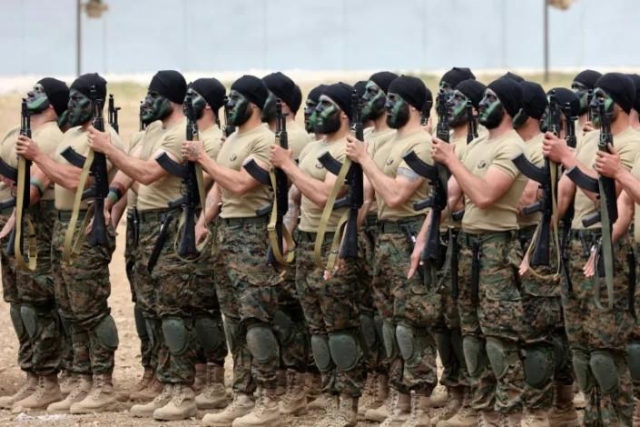The recent meeting between Hezbollah's Secretary General, Hassan Nasrallah, and senior members of other Palestinian terrorist organizations, including Saleh al-Arouri, Deputy Head of Hamas's Political Bureau, and Ziad Al-Nakhla, Secretary General of the Islamic Jihad, has sparked significant concerns in Lebanon. This comes at a time when Lebanon is grappling with an unprecedented economic crisis that has taken a severe toll on its citizens.
Within just one week, over 5,600 Lebanese citizens boldly added their names to a new petition titled "Lebanon against War." This response is particularly noteworthy given the widespread fear of potential reprisals from Hezbollah. The petition's message is clear: "We, the citizens of Lebanon, both at home and abroad, firmly believe that Lebanon should not be drawn into the ongoing conflict in Gaza. We reject the usurpation of our national sovereignty while our beloved country becomes a proxy battleground. We call upon the Lebanese government to uphold its responsibility to safeguard our national interests, especially in a time when our economic and social foundations are crumbling. We resolutely refuse to be dragged into another cycle of devastation and bloodshed, which could inflict irreparable harm upon all Lebanese."
“Lebanese Citizens in Lebanon and abroad
— Karim Emile Bitar (@karimbitar) October 25, 2023
Call on the international community to push towards an immediate ceasefire.
Firmly refuse to be dragged into another cycle of destruction and bloodshed.”
To sign the petition
👉https://t.co/X9gwvdBS3c#LebanonAgainstWar#لبنان_ضد_الحرب pic.twitter.com/3o232qqscs
Abbas Al-Halabi, the Minister of Education in Lebanon's interim government, emphasized the country's commitment to adhere to international Resolution 1701. He stressed, "Lebanon has no interest in becoming entangled in ongoing military conflicts. It is our government's duty to do everything in its power to safeguard our nation. The Prime Minister is actively engaged in diplomatic efforts, both regionally and internationally, to protect our country and prevent southern Lebanon from descending into open conflict." Al-Halabi also disclosed ongoing discussions with Hezbollah, aimed at "warding off potential threats," and highlighted the "urgent need for the international community to exert pressure on Israel to cease its provocations in southern Lebanon."
Ali Alamin, the editor-in-chief of the Lebanese news outlet "Al Janoubia," known for his outspoken opposition to Hezbollah, shared his perspective during an interview with "Al Arabiya." He stated, "This meeting seems to suggest that the alliance between these groups remains intact and unproblematic. Furthermore, it implies that Nasrallah is overseeing operations, closely monitoring developments, and maintaining communication with field commanders." Alamin went on to assert that "Hezbollah's actions in southern Lebanon are not geared towards dragging Israel into an all-out confrontation. Instead, these actions seem calculated to diminish the level of criticism directed at Nasrallah himself."
Demonstrators with #Hezbollah flags attacking now the American University of Beirut.
— Sara Assaf (@SaraAssaf) October 18, 2023
How can attacking a University in #Lebanon, full of Lebanese professors, employees and students, benefit the Palestinian cause and the people of #Gaza?! pic.twitter.com/C7j4cIaIBW
In the midst of Lebanon's dire economic crisis, these developments raise significant concerns among the Lebanese populace. The petition's rapid growth underscores the widespread desire to avoid further entanglement in regional conflicts. As Lebanon navigates treacherous waters, its leaders face the challenging task of safeguarding national interests while steering clear of conflict, all while grappling with the severe economic challenges that threaten the well-being of its people.


